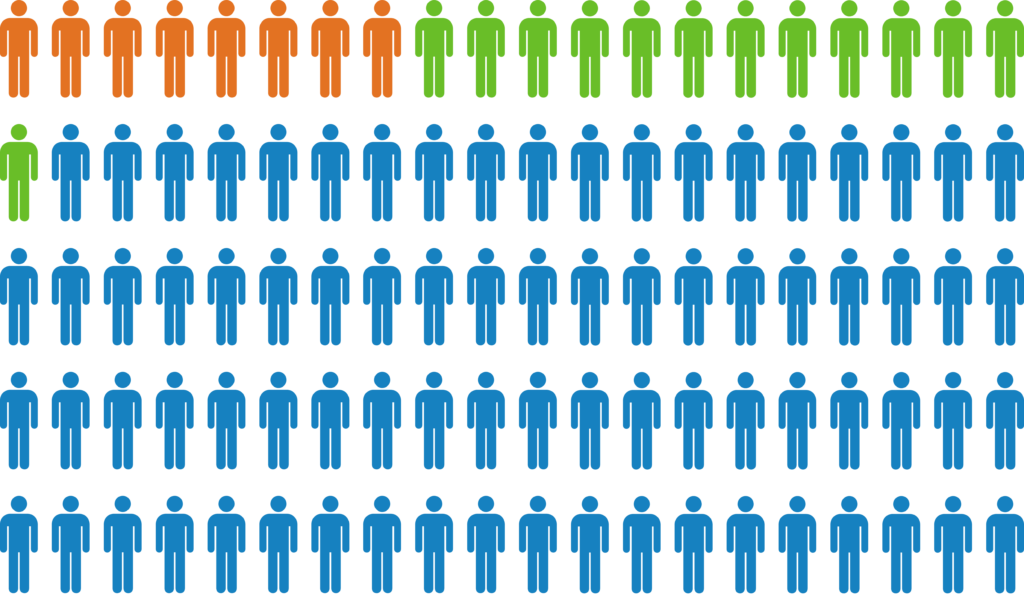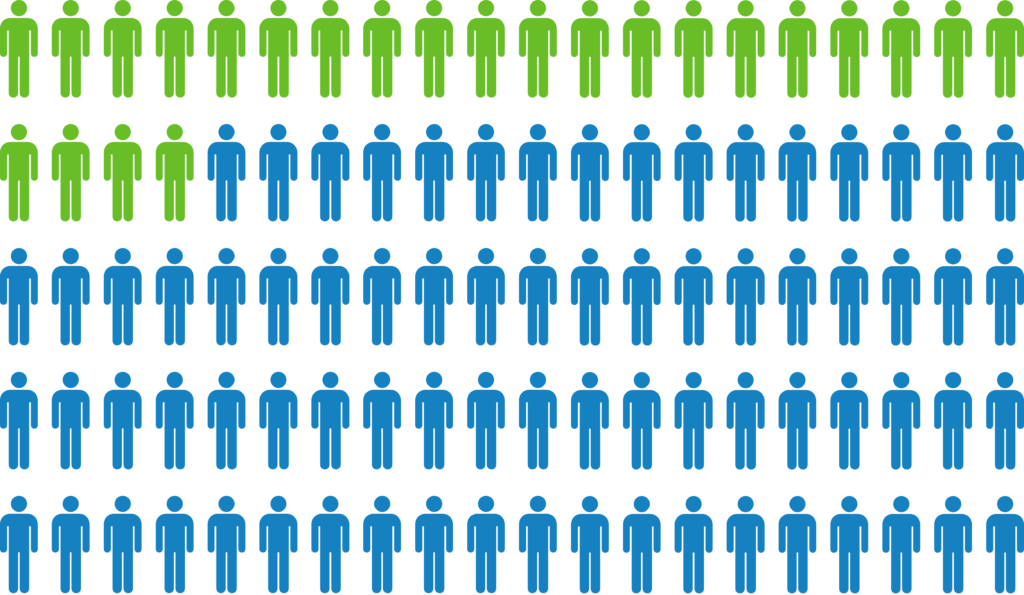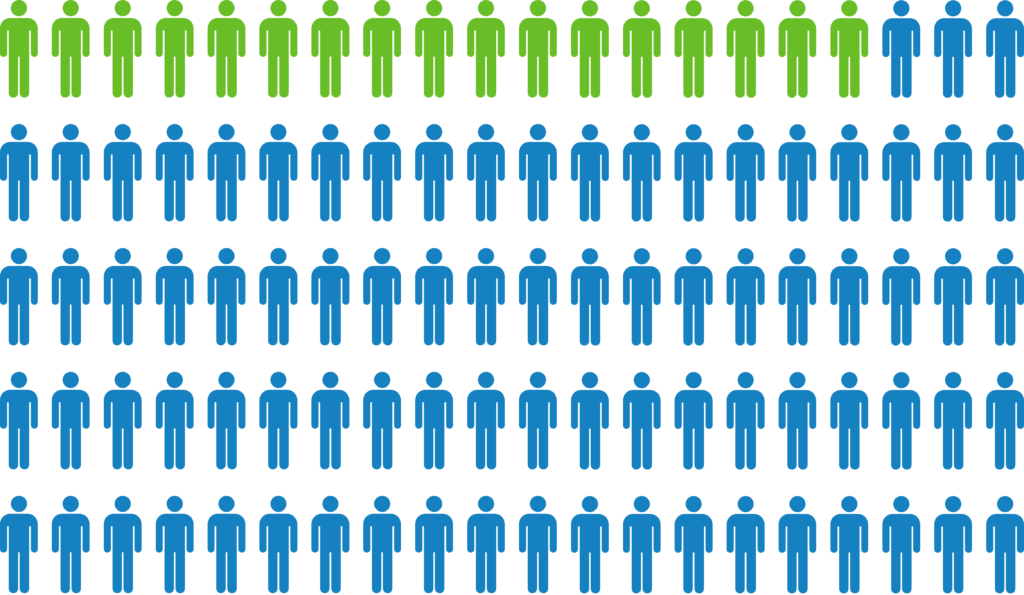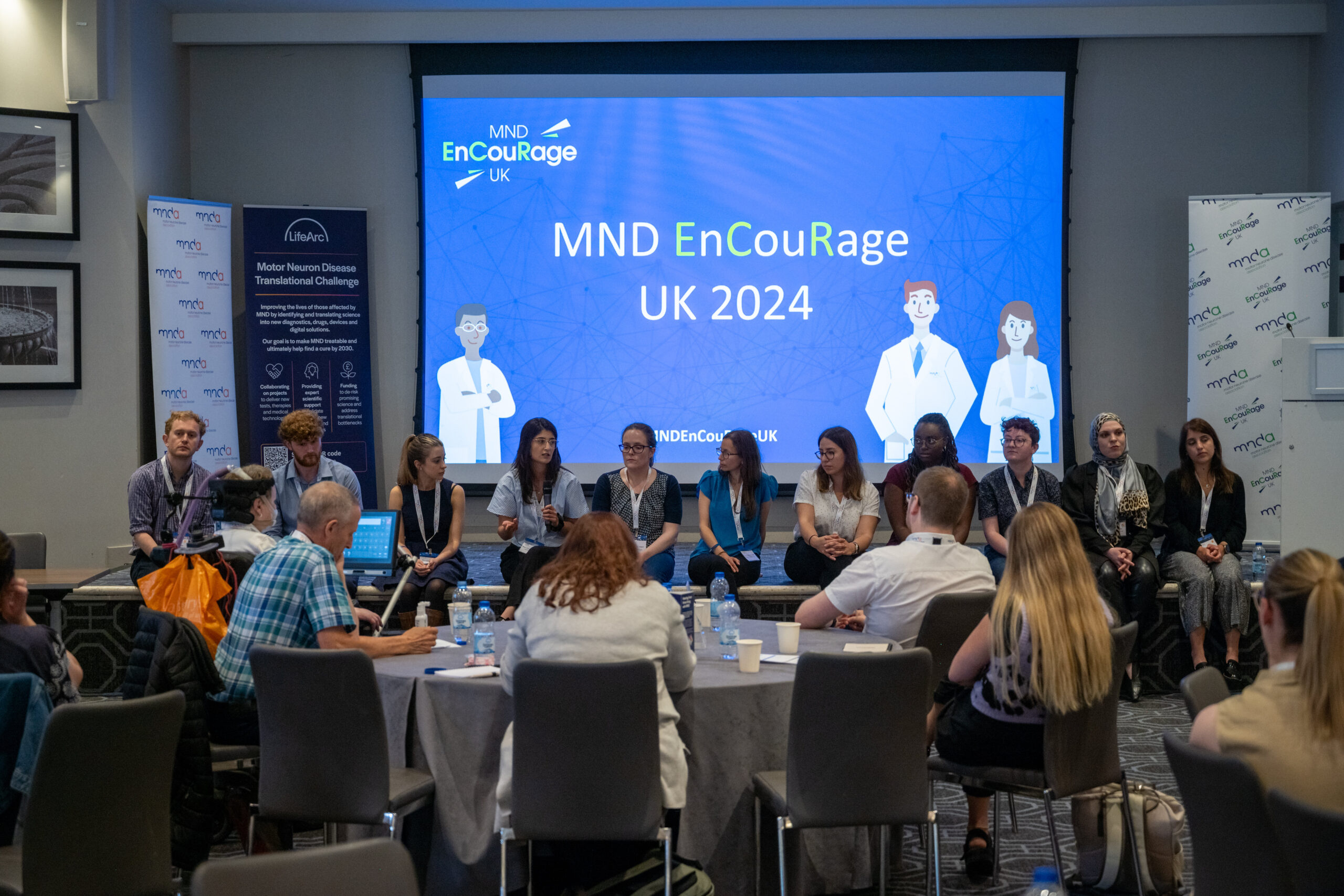The recent publication of the results from the Phase 3 Tofersen trial, an experimental gene therapy for the treatment of MND in people with a change in the gene that instructs the SOD1 protein, has provided increasing confidence that Tofersen is having a beneficial effect in people living with SOD1 MND. This and the development of other gene therapies for MND in the future has brought the conversation of genetic testing to centre stage. If these types of gene therapies are approved, it is important that people who may benefit have the opportunity to access them.
Whilst genetic testing is a personal decision for the person living with MND and their families, there is growing discussion within the MND and research community that everyone who is diagnosed with MND should be offered genetic testing and informed of the options and implications. With this in mind, a new research paper has just been published, in Brain, which provides additional scientific evidence that suggests that genetic testing for everyone who is diagnosed (or may be) with MND may be of benefit in accessing potential treatments. It is important to acknowledge that this is not a simple decision as the potential ripples may be felt far and wide, and so an understanding of the potential implications for the individual and wider family should be considered, along with appropriate genetic counselling – something that is not always possible at the moment.
What are the current guidelines for genetic testing in the UK?
The current UK guidelines state that only people living with MND with a family history of MND, dementia or who experience disease onset at a young age (less than 40 years old) should be routinely offered genetic testing. This means approximately 7% would be offered genetic testing to see if they carried a faulty gene (figure 1a).

We discussed whether routine genetic testing should be considered for all cases of MND back in a blog in February 2021. This was after the publication of a research paper which carried out genetic testing on 100 people living with MND, who had enrolled into a research study called Project AMBRoSIA. This publication found higher than expected genetic changes in the group, especially in those who had apparent sporadic MND, where there is no family history. In total they found that 21 participants out of 100 were found to have mutations in a gene that is known to increase the risk of MND. 14 of these participants had apparently sporadic MND (figure 1b).

New research provides additional scientific support
New evidence has recently been published from researchers at King’s College London which further supports making genetic testing available for all diagnoses of MND. This work was supported by the MND Association. The research delved deeper into the impact of age on genetic testing in MND by screening 1551 people living with sporadic MND in the UK for 26 genes known to be relevant to MND. They found, for all ages, that 21% of the 1551 were found to have a change in one of these genes. Put in another way this means 326 people out of the 1551 had a change in a relevant MND gene.
The research study also went on to split the participants up into age categories to show the probability of someone in that age category having a change in a gene associated with MND. When looking through the lense of the current testing guidelines i.e. people must be under 40 to be tested, they found that 24% people would have a faulty MND associated gene (figure 2a). Between 40 and 70 years of age they found between 20-24% of people would have a faulty MND associated gene.

The researchers also found that even those who were aged 70+ had a substantial risk (17%) to have a faulty MND gene (figure 2b). This means that a significant number of people over 40 do have MND associated gene changes and none of these people would be eligible for testing under current guidelines. Therefore, none of these people would be able to take part in clinical trials for gene therapies that might work for them, nor access genetic therapies as they become available.

The publication goes on to state that they estimate that 97-98% of sporadic MND cases with a gene change will missed per year in the UK. This is because in cases of sporadic MND where a genetic change is present, the majority of these people are over 40 before diagnosis or are not eligible for genetic testing as there is no family history.
We are entering a new era of possibility in personal medicine and genetic therapies. It is therefore important to consider and understand the future need for genetic testing and how this is changing – particularly in the context of MND which is regarded as an adult-onset disease with increasing risk as we age. The importance of genetic information will increase as potential genetic therapies are developed and become available. In MND there are several gene therapies that are currently being tested in clinical trials. These clinical trials include experimental treatments for SOD1, C9orf72 and FUS genes and it is likely that more of these gene therapies will emerge over the coming years. Changing the current guidelines to allow everyone diagnosed with MND to be offered genetic testing, will allow more people living with MND an opportunity to be involved in these clinical trials and ultimately access to genetic treatments.
While in this blog we discuss the impact of genetic testing on the UK population, this is also a global issue. There are potentially thousands of people living with MND worldwide who are not offered genetic testing, counselling and therefore not able to access potential gene-based therapies. The International Alliance of ALS/MND Associations, which the MND Association is a part of, includes a supportive statement about access to genetic testing, genetic counselling and continued education about genetics in their fundamental rights for people living with ALS/MND.
Genetic testing is a personal decision
Whilst some people are often eager to get genetic testing, undertaking genetic testing can be an emotive and difficult subject within families with a variety of different implications. Genetic counselling is an important step before having a genetic test. The counsellor goes through all of the options and answers any questions, allowing the person with MND to make up their own minds on whether they want to go ahead with the test. For those who may be considering genetic testing there is also a really useful resource, called Healthtalk, which has real-life interviews from people with MND and their families on the experience.
As an Association we think it is important to support people considering a genetic test and to keep them as informed as possible. We believe that increasing informed discussions around genetic testing will help to improve access. We are currently funding a research project, led by Dr Alisdair McNeill from the University of Sheffield, which is looking at the development of a patient decision aid to support genetic testing in MND. Since deciding to undergo genetic testing is such a huge decision, the decision aid will highlight the pros and cons of genetic testing. This will enable people to have informed discussions with clinicians and make a decision they are comfortable with. This work is hoped to support clinicians, people living with MND, their families and help improve access to genetic testing.
What’s next?
The global MND community are still discussing the pros and cons of routine genetic testing and the challenges that would need to be overcome for this to happen. This is an active area within the MND research community, with structured debates on this topic held at recent conferences. The conversations will be further pushed on with the development of new potential treatments that that are designed to target specific genes and enabling as many people living with MND as possible an opportunity to take part in clinical trials testing these potential treatments and then to access them if they are found to be effective.
Additional resources:






